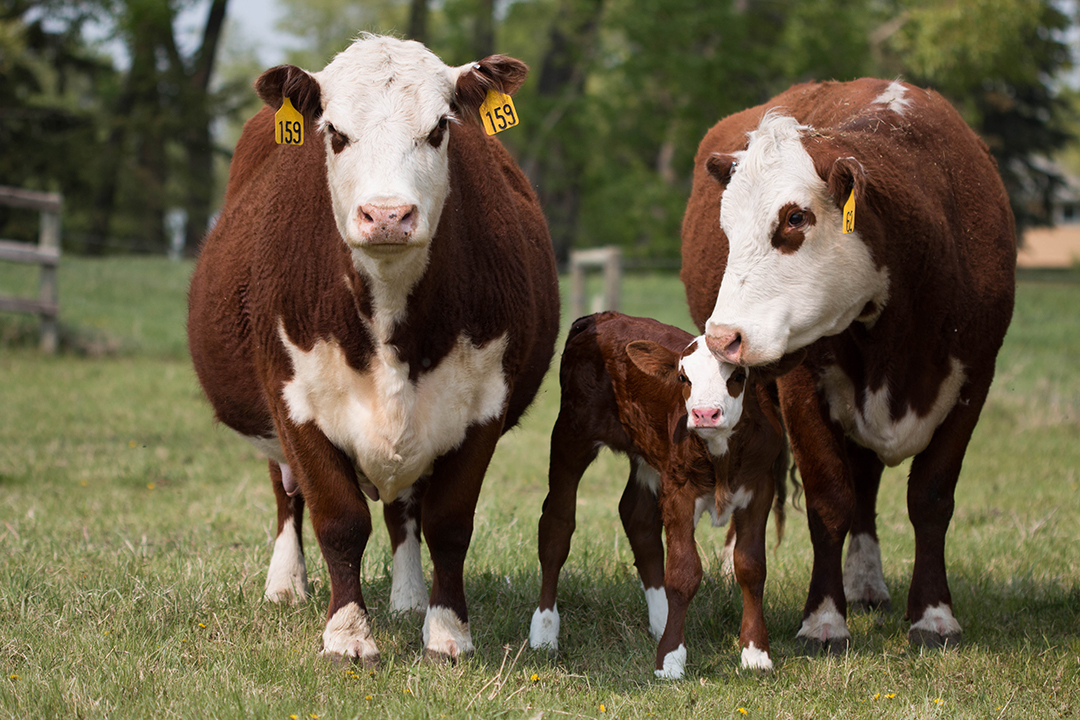
WCVM scientists awarded nearly $1.5 million in research funding
Researchers linked to the Western College of Veterinary Medicine (WCVM) have been awarded $1,495,000 to address a wide range of issues including preventing pregnancy loss in horses, evaluating tick-borne diseases, and protecting pigs from influenza A infection.
By WCVM CommunicationsThis total is part of a larger funding announcement from the Natural Sciences and Engineering Research Council of Canada (NSERC), which awarded nearly $11 million in Discovery Grants to 59 University of Saskatchewan (USask) research projects. NSERC allocated an additional $125,000 to augment support for 10 early-career researchers at USask.
“This major federal investment is essential to advance our research discovery and innovation — not just for a safer, cleaner, more prosperous future for Canada, but also to help answer science’s big, fundamental questions,” said USask Vice-President Research Karen Chad.
The results were announced May 21 in Hamilton, Ont., by federal Science and Sport Minister Kirsty Duncan.
NSERC Discovery Grants support longer-term research endeavours in the natural sciences and engineering to foster research excellence, and provide a stimulating environment for research training.
The following WCVM-linked projects were awarded funding:
Preventing pregnancy loss in horses — Claire Card, professor, WCVM Department of Large Animal Clinical Sciences, $140,000. By examining hormone levels at various stages during early pregnancy in horses, researchers will gain a better understanding of how a mare’s reproductive system adapts to being pregnant, and develop new therapies to prevent early pregnancy loss. Early pregnancy loss in horses affects more than 10 per cent of pregnancies and causes substantial economic loss for the horse industry.
Protecting pigs from influenza A — Yan Zhou, researcher, VIDO-InterVac; and adjunct professor, WCVM Department of Veterinary Microbiology, $290,000. The researchers will examine the mechanisms behind inflammation in the lungs of pigs in response to influenza A infection. The results will eventually contribute to better control of swine influenza.
Understanding the role a protein complex plays in the protection against environmental stress in worms – Cheng-Wei (Michael) Wu, assistant professor, WCVM Department of Veterinary Biomedical Sciences, $185,000. This research project evaluates the role of a novel multiprotein complex called Integrator on the cell surveillance and protection against environmental stress in a small worm called Caenorhabditis elegans, which is used extensively as a model organism for biomedical research. Wu received an additional NSERC Early Career Researcher supplement of $125,000.
Investigating the role of proteins in viral gene expression – Kristen Conn, assistant professor, WCVM Department of Veterinary Microbiology, $150,000. Conn is investigating the effect of histone exchange mechanisms – the way a group of proteins inside the nucleus of a cell exchange genetic information – on viral gene expression. Conn received an additional NSERC Early Career Research supplement of $125,000.
Better understanding of adenovirus infection in cattle – Suresh Tikoo, researcher, VIDO-InterVac; and associate member, WCVM Department of Veterinary Microbiology, $250,000. This research will work to characterize structural protein within bovine adenovirus-3, a viral pathogen that affects the respiratory tracts of cattle, particularly newborn calves. Adenovirus infections in cattle involve either respiratory or gastrointestinal tracts. These common viruses are found worldwide and are particularly widespread in Central America and Africa.
The study and manipulation of male reproductive stem cells – Ali Honaramooz, professor, WCVM Department of Veterinary Biomedical Sciences, $140,000. Honaramooz’s research team has conducted groundbreaking work in “germ cell transplantation,” developing a technique for germ cell (spermatogonial) transplantation in farm animals. This funding will help Honaramooz and his team continue improving the outcome of germ cell transplantation, with the goal of using this technique as a viable, alternative approach to producing transgenic (genetically modified) farm animals. The production of transgenic livestock could help to improve human health, protect the environment, increase animal welfare and decrease disease in livestock.
Ecology of co-infection in a tick-borne pathogen – Maarten Voordouw, assistant professor, WCVM Department of Veterinary Microbiology, $140,000. Researchers are studying how ticks, a tiny parasite that can cause disease in both humans and animals, can cause more than one infection in the host.
Microbiome and early development of mucosal immune system — Philip Griebel, researcher, VIDO-InterVac; and associate member, WCVM Department of Veterinary Microbiology, $200,000. Griebel and his research team are using a variety of genomic and proteomic tools to characterize the role of specific mucosal cell populations and genes in regulating innate and adaptive mucosal immune responses during the critical neonatal period.
